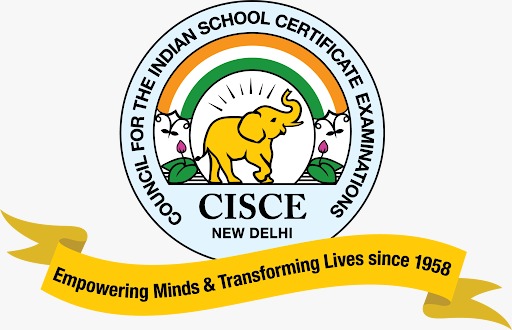Introduction
The Cambridge Syllabus was developed by the University of Cambridge International Examinations (CIE). The syllabus is a meticulously crafted curriculum for students of different age groups and phases, offering a holistic and comprehensive approach. The framework is a sought-after strategy to nurture students academically at various stages. The syllabus with its international perspective, offers a diverse range of subjects, transcending geographical boundaries. The robust strategies instill critical thinking, creativity, and a deep sense of understanding of the subject matter.
Cambridge Syllabus is often regarded as a synonym with academic excellence, preparing students to thrive in an interconnected and dynamic global landscape.
Key Components of the Cambridge Syllabus
The Cambridge Assessment International Education offers a range of syllabi that cater to different stages in a student’s life through learning. The academic journey explores the following key components and levels:
Key Components:
Subject Areas
The Cambridge syllabus covers a wide array of subjects, including languages, sciences, humanities, mathematics, and the arts. From the core subjects to the optional subjects, the syllabus and their structure are meticulously crafted. These develop critical thinking, problem-solving, and subject-specific knowledge.
Curriculum Framework
The syllabus is designed and framed in such a way as to outline the necessary knowledge, skills, and understanding that a student should inculcate at a respective phase. The framework enhances the intellectual capacity of a student based on the metrics that a student is supposed to possess. The framework is so flexible that fits the abilities of both teachers and students, providing a stance to be on the same page.
Assessment Structure
The syllabus is known to include written examinations, practical assessments, coursework, and oral examinations at each stage in a different format. Such sessions conducted are meticulous and rigorous with fair evaluation. Students find it easy to follow concepts as teachers are also given the necessary training to look after the teaching process. Even teachers’ assessment records are also held.
Global Perspective
Cambridge syllabus is known to have been globally accepted. The syllabus with a holistic and comprehensive approach covers concepts at a global level understanding. The syllabus can foster international-mindedness and be empathetic about diverse perspectives.
Skill Development & Flexibility
The syllabus emphasizes developing a range of skills, including critical thinking, research, and communication skills. The syllabus is not only for the current stage of these students but also for their future endeavors. The total framework is flexible for both the teachers and students to align themselves together on one syllabus.
Levels of Cambridge Syllabus
The Cambridge Early Years
The Cambridge Early Years program, designed for children aged 3 to 6, focuses on fostering a love for learning through child-centered and play-based activities. It emphasizes holistic development, catering to the social, emotional, physical, and cognitive aspects of young learners. The program utilizes a range of resources and tools, including engaging materials, assessment approaches, and professional development for educators. This combination aims to equip children with the foundational skills and knowledge needed to thrive, not only in their future academic endeavors, but also in their overall development and well-being.
Cambridge Primary
This is a foundational education targeted towards children aged 5 to 11. The subjects in the Cambridge Primary Curriculum include English, Mathematics, and Science. Apart from core teachings, the syllabus focuses more on practical skills while nurturing a love for learning. Various assessments are taken to provide feedback to support further development.
Cambridge Lower Secondary
The syllabus or the curriculum broadens up a little, covering more concepts. This stage is targeted towards students of age 11 to 14. Core subjects include English, Mathematics, Sciences, and Humanities. The skills of critical thinking and problem-solving incorporated through their syllabus and assessments are run.
Cambridge Upper Secondary (IGCSE – International General Certificate of Secondary Education)
This phase acts as a precursor to the advanced level of qualifications. It provides a broad and balanced curriculum, enabling students aged 14 to 16, to explore diverse subjects. The assessments are external examinations, to understand whether students can get the topics and apply them. The general certificate from this stage has the potential to open doors to varied opportunities.
Cambridge International Certificate
This is a specialized qualification that is designed for a specific subject area. The whole curriculum provides students with an in-depth understanding of a particular field of study. The certificate at the end of the level-related assessments is recognized for its academic and is often pursued alongside the other qualification
Cambridge International AS & A Level
The syllabus in this phase is offered to the students aged 16 to 18. The curriculum in this phase provides in-depth knowledge and expertise in chosen subjects. The A-level qualification is often termed and highly regarded as a benchmark by the Universities worldwide for academic excellence.
Cambridge Advanced Subsidiary (AS) Level
This is a standalone qualification that represents the total first half of an A Level. This level allows students to explore subjects in-depth and qualifying out of this phase is considered as a stepping stone to complete the full A level.
Cambridge Advanced (A level)
This stage is for students aged 16 to 19. The syllabus represents more specialized and in-depth study. ‘A’ Level is a curriculum, that is meticulously crafted as many universities and employers globally have adapted and opens doors of opportunities. Students in this stage have the freedom to focus on their elective subjects and excel in them.
Features of Cambridge Syllabus
Known for its comprehensive and global approach, it stands out for its international perspective. Here are the key features of the Cambridge Syllabus.
International Perspective
- The hallmark of the syllabus is to provide an international perspective.
- The syllabus entails the student to have a global outlook, fostering an understanding of different cultures.
- The curriculum offers a comprehensive and holistic approach regarding all important aspects around the world.
- Distinct perspectives are offered through different cultures, societies, and narratives.
- This is reflected in the choice of subjects, themes, and examples used in the curriculum, making them relevant.
Curriculum Framework
- The whole syllabus and the stages are designed by a well-defined curriculum framework.
- This outlines the essential knowledge, skills, and understanding students should acquire from each subject or phase.
- Each stage has its assessment metrics to know the level of student’s competence.
- The competence building in practical aspects is also one of the core parts of the framework.
- The framework serves both the teachers and the students on the same page.
Broad Range of Subjects
- The Cambridge syllabus offers a diverse range subjects across various disciplines.
- This includes languages, sciences, mathematics, and humanities to the core.
- The diverse nature of the curriculum also offers subjects to explore at the discretion of students according to their interests.
- The diversity allows students to strengthen themselves in their interested aspects.
- The range of subjects and the methods used to teach them, provide a well-rounded education that goes beyond the traditional boundaries.
Flexibility in Implementation
- The Cambridge syllabus is flexible enough for the Schools and teachers in terms of how they deliver the curriculum.
- The syllabus is accepted by varied Universities and Higher education institutions.
- The syllabus is known to have the flexibility in adaptation of local contexts, integration of relevant content, and teaching strategies.
Skill-Based Assessments
- Assessments of students’ performance are based on their skills.
- Each subject or phase has its way of assessing.
- As the syllabus emphasizes on comprehensive approach, not only theoretical bit but also practical knowledge is very crucial.
- Problem-solving, practical application, and critical analysis are the main aspects of assessment.
Development in Critical Thinking
- Critical thinking is known to be implemented throughout the phases of the syllabus.
- This concept is to go beyond rote memorization, encouraging students to analyze any given information.
- Evaluation of evidence and formulation of well-reasoned arguments are important to develop or enhance these skills.
- The focus is to not only equip them with enough skills to qualify in their curriculum but also use them in real-life situations.
Recognition and Credibility
- Cambridge Qualification has a great reputation across the world.
- Any student qualifying out of such a curriculum can get more opportunities.
- The opportunities include both higher studies and employment.
- The curriculum is recognized, so it has credibility, opening doors to a broad range of opportunities.
Development of Independent Learning
- Cambridge syllabus has a few levels where it provides a chance for students to find their interests.
- The syllabus encourages students to own their education.
- Various research programs, projects, extended essays, and self-directed studies develop enough skills.
- These skills ensure students to huddle up and pursue and research on their own.
Preparation for Higher Education
- As the Cambridge syllabus provides a holistic and comprehensive approach, this is an excellent way to prepare for higher education.
- The in-depth study, critical, and analytical skills equip students with the tools needed for success.
- The global perspective imparted through the curriculum shall have a profound impact, on enrolling in higher education.
- As the Cambridge syllabus is a well-reputed one, students with such qualifications are acceptable by Universities for higher education.
Conclusion
Cambridge syllabus continues to be a respected and sought-after educational framework for its comprehensive educational framework, offering various skills. Preparing not only academically, but also with practical skills to develop the global awareness needed for the future.
FAQs (Frequently Asked Questions)
- Is the Cambridge syllabus recognized by universities worldwide?
Yes, the syllabus is widely recognized by Universities worldwide. The comprehensive framework with a holistic approach emphasizes critical thinking making it a respected qualification for University admissions. Enrollment of a student for any higher education is based on past qualification also, and qualifying out of the Cambridge syllabus is a legit credential.
- What subjects are available in the Cambridge syllabus?
Cambridge Syllabus covers diverse subjects across multiple disciplines, including languages, science, mathematics, English, and arts. Throughout the primary, secondary, and advanced levels, mandatory subjects and optionals cover diverse topics, enriching the academic experience.
- How does the Cambridge syllabus differ from other educational systems?
International Perspective, a comprehensive and holistic approach, and a flexible curriculum are the distinct qualities that make it different from other educational systems. The curriculum teaches a holistic view, preparing them for success in an ever-evolving and interconnected world.
- What is the Cambridge syllabus?
It is a comprehensive educational framework, offering a comprehensive and holistic approach. It spans early years, primary, secondary, and advanced levels, offering a diverse range of subjects.






